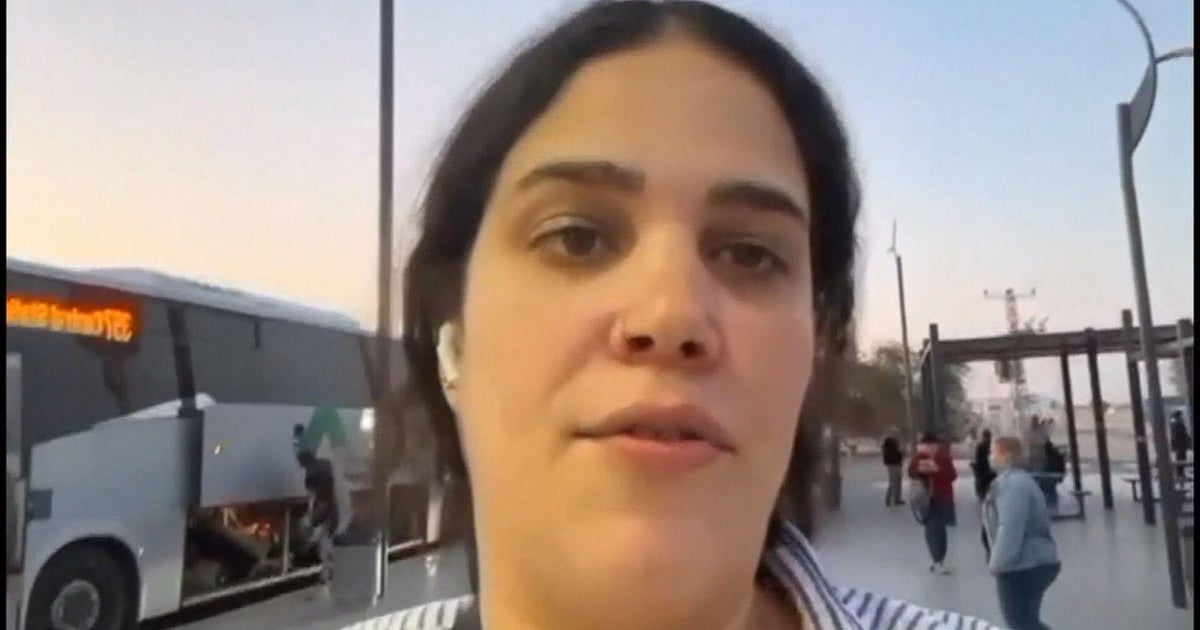AIPAC 2020: Bernie Sanders vs. the U.S.-Israel relationship
The message at this year's AIPAC Policy Conference was clear: Bernie Sanders must be stopped for the sake of the U.S.-Israel relationship.
The Vermont senator was absent from the largest annual pro-Israel gathering in America attended by over 18,000 people from around the world, but he still took center stage.
Sanders has drawn widespread criticism for his comments during last week's Democratic debate, where he called Israeli Prime Minister Benjamin Netanyahu a "reactionary racist" and blasted the American-Israel Public Affairs Committee for providing a platform "for leaders who express bigotry and oppose basic Palestinian rights."
"AIPAC is not a platform for bigotry," the Conference of Presidents of Major American Jewish Organizations' president said at the conference. "AIPAC is a platform for countering the bigotry all over the world that Jews are subjected to."
AIPAC leaders treated Sanders' comments as a call to arms for delegates at the conference, warning of what a Sanders administration would mean for the U.S.-Israel alliance.
"Let me say this plainly, any leader who energizes their political movement by demonizing Israel is not a friend of Israel," AIPAC's CEO Howard Kohr said Sunday, setting the tone for the conference without explicitly naming Sanders. "The pro-Israel community will work to defeat those who try to harm our friends, and those who try to harm the US-Israel relationship."
Without addressing him by name, Democratic lawmakers spoke out against Sanders' policy positions on Israel, which include conditioning U.S. foreign aid to Israel and moving the U.S. embassy in Jerusalem back to Tel Aviv.
The U.S. provides $3.3 billion in foreign military funding to Israel and $500 million in missile defense, a total authorized by President Obama in 2016 as part of a 10-year security assistance Memorandum of Understanding (MOU) with Israel.
Rep. Nita Lowey, the outgoing chairwoman of the House Appropriations Committee, said, "If anyone out there is suggesting we cut aid to Israel, it comes from their ignorance, frankly, and they don't understand the importance of the Israel-United States relationship."
"We know that there are those who use Israel as a way to score political points," Senate Minority Leader Chuck Schumer followed. "As long as I am leader in the Senate, support for Israel will be non-negotiable."
Former presidential candidate Sen. Cory Booker of New Jersey joined his colleagues, adding: "Israel must never become a Republican issue or a Democratic issue. It must always be an American issue, a bipartisan issue, our issue… I call on all of us to guard against those who insidiously try to politicize the Israeli-American partnership."
Meanwhile, House Minority Leader Kevin McCarthy blasted Sanders for campaigning with Rep. Ilhan Omar, who was criticized by both Democrats and Republicans last year for anti-Semitic comments about AIPAC, claiming the organization's influence is "all about the Benajamins" and that its supporters "push for allegiance to a foreign country."
"Instead of standing with Israel, he is campaigning with Congress's most vocal supporters of the vile BDS movement," McCarthy said. "You may know her as Congresswoman Omar," he added, prompting loud boos from the audience.
A dramatic shift from 2016
During AIPAC's 2016 policy conference, then-candidate Donald Trump took to the stage and blasted President Obama as "the worst thing to ever happen to Israel." The ensuing applause caused a major problem for the organization's leaders.
AIPAC President Lillian Pinkus denounced the "ad hominem attacks...levied against the president of the United States of America from our stage" and said the organization was "disappointed that so many people applauded a sentiment that we neither agree with nor condone."
In stark contrast, this year AIPAC welcomed attacks on a presumptive Democratic nominee for president from its stage.
Israeli ambassador to the United Nations, Danny Danon, called Sanders "a liar, an ignorant fool, or both" for calling Netanyahu a racist, and stated, "We don't want Sanders at AIPAC. We don't want him in Israel." AIPAC did not condemn the statement.
Trump administration officials took the opportunity to tout the president's pro-Israel actions, which include moving the U.S. embassy from Tel Aviv to Jerusalem, recognizing Israeli sovereignty over the Golan Heights, reversing a decades-long position supported by international law that Israeli settlements are illegal, and closing the Palestinian office in Washington.
"There is no president and no administration that loves Israel more than our team," Secretary of State Mike Pompeo asserted, drawing a booming applause from the audience.
Blasting Sanders' record in comparison, Vice President Mike Pence said Sanders would be "the most anti-Israel president in the history of this nation." U.S. Ambassador to Israel David Friedman said, "anyone who speaks of returning the embassy to Tel Aviv is rejecting a generation of overwhelming bipartisan consensus."
Why it matters for 2020
The messaging on Sanders was noticeable on the campaign trail as some AIPAC supporters helped fund an anti-Sanders ad campaign in early primary states through a political action committee launched last year called DMFI (Democratic Majority for Israel) Pac, an independent organization separate from AIPAC.
While some donors to DMFI Pac are also donors to AIPAC (and some not) the political arm of the Democratic Majority for Israel ran the six-figure ad campaign in Iowa in January questioning Sanders' health after suffering a heart attack in early October as well as his ability to defeat President Trump.
According to language on DFMI Pac's website, the organization says it's seen a "troubling pattern emerge as Senator Sanders, and those around him, continue to be uniquely hostile on the Israel issues central to our mission. While Sanders is Jewish, regularly claims to be "100% pro-Israel," and has voted correctly on some key legislation."
They add, "Were he to win the nomination, DMFI PAC believes the floodgates would be opened to anti-Israel activities and positions throughout the party."
AIPAC spokesman Marshall Wittmann denied the pro-Israel lobby's involvement in funding of the Sanders ad, telling the Associated Press that the organization "is not and has not been involved in the ad campaigns of any political action committee."
While DMFI Pac is not formally affiliated with pro-israel lobby, AIPAC did little to hide the sense of urgency to stop a Sanders nomination throughout the conference.
Sanders told "Face the Nation" that he knows there is a political cost to taking on the pro-Israel lobby.
"Yeah, I do. I mean, they have a lot of money. They have a lot of power," he told Margaret Brennan on Sunday after Danon said he was unwelcome in Israel.
"Look, I'm Jewish and I'm very proud of my Jewish heritage… I am not anti-Israel. I will do everything I can to protect the independence and the security and the freedom of the Israeli people. But what we need in this country is a foreign policy that not only protects Israel, but deals with the suffering of the Palestinian people as well," he added.



